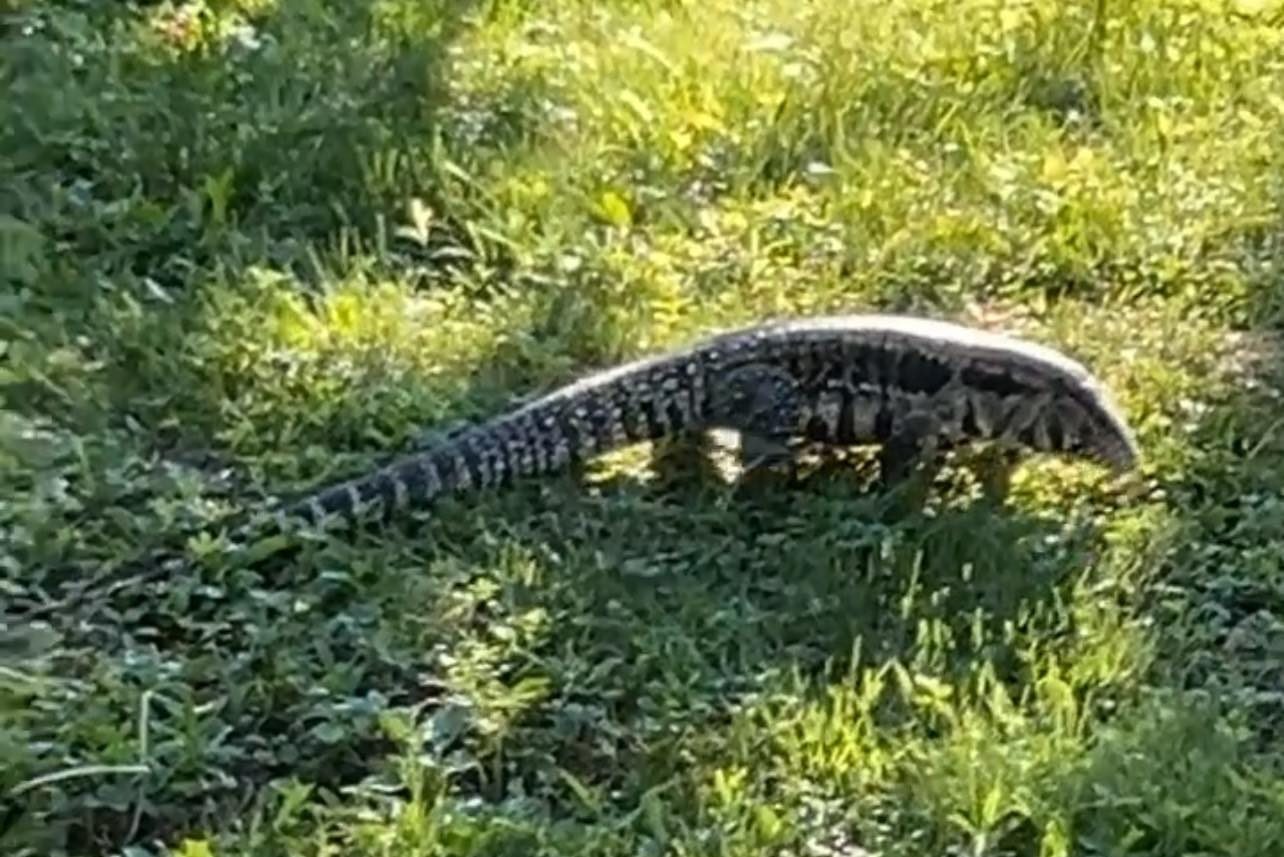
News that a 4-foot-long reptile was stalking the hills of a community just north of Bangor did not go unnoticed.
The Old Town Police Department’s Aug. 24 Facebook post warning residents of a “Large Lizard on the Loose” drew more than 2,000 likes, comments and shares.
TV stations from all over Maine jumped on the story of Blue, a female tegu who escaped her owner’s house and yard. The Boston Globe, USA Today and People magazine soon followed suit.
Now, a week and a half after Blue was last spotted by a neighbor, the headlines have dried up and the public seems to have moved on, even as the sharp-toothed creature remains on the lam.
Two Old Town police officers, including Deputy Chief Josh Loring, said Wednesday that they didn’t have any updates in the case.
Last week, administrative assistant Cassey Wells said police weren’t actively looking for the missing pet but would respond if anyone reports a sighting.
“There really isn’t a whole lot we can do to trap the lizard, because you don’t want to injure it,” she said. “If you see it, give us a call.”
A man who claimed on Facebook to be Blue’s owner did not respond to an interview request.
This is not the first time a missing reptile has caused a stir. A decade ago, the sighting of a 10-foot Burmese python along the bank of the Presumpscot River in Westbrook, turned “Wessie” the snake into a minor celebrity. Just weeks before Blue made her escape, a monitor lizard named Goose spent two weeks wandering Massachusetts and Connecticut before being captured and sent to an animal sanctuary.
A runaway tegu may seem like a more exotic story than a typical missing dog case. But the lizards, which are native to South and Central America, are on the Maine Department of Inland Fisheries and Wildlife’s unrestricted species list, meaning Mainers can legally own them as pets without any special training or permit.
Hundreds of species of fish, birds, reptiles and other creatures are on the list, which is curated by experts to ensure that animals that could harm Maine ecosystems or people are excluded, said Lauren McPherson, a wildlife interactions biologist with the IFW.
“As long as they’re not not checking any of these boxes that would cause an issue to Maine’s wildlife, to their habitats, to the people, to livestock, then we find that they are safe to own,” she said.
Though it’s possible that a loose tegu could prey on local birds and other small creatures, its inability to survive a Maine winter means it poses a minimal risk as an invasive species, she said.
Police have warned the public about tegus’ strong jaws and sharp teeth and claws, but they also noted that they are usually docile unless cornered.
While interest in Blue’s disappearance appears to have waned, McPherson said the appetite for exotic pets in Maine is “honestly more than I ever would have thought.” Her team is currently considering some 5,000 proposed additions to the unrestricted species list, mostly brought forward by pet stores eager to meet the demand of their customers.

We invite you to add your comments. We encourage a thoughtful exchange of ideas and information on this website. By joining the conversation, you are agreeing to our commenting policy and terms of use. More information is found on our FAQs. You can modify your screen name here.
Comments are managed by our staff during regular business hours Monday through Friday as well as limited hours on Saturday and Sunday. Comments held for moderation outside of those hours may take longer to approve.
Join the Conversation
Please sign into your CentralMaine.com account to participate in conversations below. If you do not have an account, you can register or subscribe. Questions? Please see our FAQs.